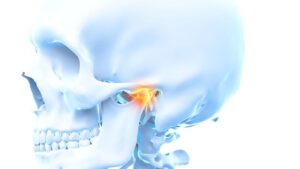
Facial pain, limited jaw movements, headaches, and other symptoms all commonly result from TMJ disorder (TMD). Not only can these issues cause extreme discomfort, but they can also adversely affect your quality of life. If you have TMD, you should seek professional treatment right away! In most cases, this disorder can be addressed via non-invasive methods. In certain instances, though, surgical intervention is the best course of action. What can you expect from TMJ surgery? This blog post explains some relevant information.
Treatment Planning
Every case of TMD is unique, so your care team will perform a thorough evaluation before they work out the details of your treatment. The first thing they will do is determine whether surgery is really necessary. It might be indicated in your case if:
- You have already tried more conservative options, and they have proven to be insufficient.
- Your pain is severe enough to interfere with your daily activities.
- You are unable to completely close or open your mouth.
- You are afflicted by certain diseases or structural problems with your jaw joints (your TMJs).
The Surgical Process
There is no single “TMJ surgery” procedure. A number of different surgeries might be able to address TMD. Here are a few examples:
- Lysis and lavage. Basically, this involves flushing out the joint to increase mobility.
- Arthroscopic arthroplasty. This minimally invasive option can be used to explore the joint and possibly return a displaced disc to its ideal position.
- Open joint reconstructive surgery. This is a more invasive procedure that involves smoothing out the joint’s surfaces, removing diseased tissues, and more.
- Condylotomy. This procedure can stabilize the jaw joints.
Your surgical team will select the most conservative procedure that seems fitting for your situation. Whichever type of surgery you undergo, you can expect a comfortable appointment thanks to local anesthesia and sedation.
Recovery
The recovery process after TMJ surgery depends on your overall health, the specifics of your treatment, and more. You may be sore for a while, and you will have to follow some post-op instructions. For example, you may need to get lots of rest, eat a modified diet, and take prescribed medications. As you heal, you should start to notice gradual improvements in how your jaw feels and functions.
It is completely understandable if you are a bit nervous about TMJ surgery. As long as you have a trustworthy surgeon, though, there is very little risk that something will go wrong. You can eagerly look forward to regaining a healthy and functional jaw!
Meet the Practice
Drs. Steve Koo and William Shepard are proud to provide a range of services for the Katy/Cypress community, including a number of surgical procedures to address TMJ disorder. If you are struggling with jaw pain and related symptoms, our team is ready to evaluate your case and recommend your next steps. Contact our office at 832-353-1100.

